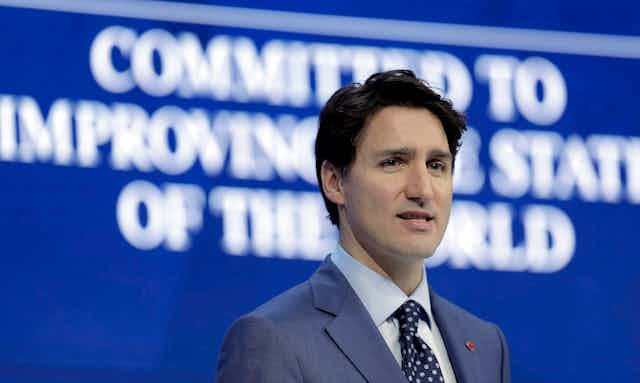The SNC-Lavalin saga offered a glimpse into the extraordinary influence of one powerful company on Canadian politicians at the highest level.
At one point, SNC-Lavalin Group chair Kevin Lynch simply picked up the phone and called Michael Wernick, then the Privy Council clerk and most powerful public servant in Canada. The purpose of the call? To ask what could be done to avoid criminal prosecution of the company.
On the heels of this controversy, the Liberals have once again yielded to industry pressure and seriously weakened their commitment to corporate accountability for Canadian companies operating abroad.
The latest win for corporate Canada is in an executive order issued by the Prime Minister’s Office that creates the first-ever Canadian Ombudsperson for Responsible Enterprise. Initially, it will apply only to the Canadian garment and resource extraction sectors. The name of the new position, and the government fanfare about it, belie the fact that the Liberals have stripped the new ombudsperson of the investigatory powers that they’ve been promising for years.
Canadian resource companies operating in developing countries have had serious and well-documented human rights and environmental impacts. United Nations organizations and civil society groups have extensively studied the issue, documenting grave violations accompanied by systemic impunity for Canadian perpetrators.
For decades, the Canadian government has examined appropriate policy responses, including by embarking upon an international fact-finding mission, and in discussions with parliamentary committees and at national round-tables. But just last month, Mexico’s ambassador to Canada put Canadian companies on notice that they must improve their conduct. There is broad agreement among stakeholders that global resource extraction must be law-abiding and sustainable.
Broken promises?
On the 2015 election trail, the Liberals repeatedly promised voters that they would act to improve the record of Canadian companies operating abroad. They promised to do away with former prime minister Stephen Harper’s discredited Corporate Social Responsibility Counsellor and create an ombudsperson capable of investigating human rights complaints.
Since then, six UN bodies have urged Canada to ensure that the promised ombudsperson is independent from government and has the tools to fully investigate, make findings and order remedies.

In January 2018, François-Philippe Champagne, then minister of international trade, announced his intention to create the ombudsperson office. But after more than 15 months of industry lobbying, the Liberals’ apparent change of heart about the clout and independence of the ombudsperson became clear when Champagne’s successor, Jim Carr, finally announced the details and named Sheri Meyerhoffer to the post.
On key issues, the ombudsperson position as created by the prime minister’s executive order falls far short of Liberal promises and international standards.
First, the prime minister has declined to use the Public Inquiries Act to guarantee that the new ombudsperson will be independent from government. Instead, Meyerhoffer will be a public servant and “special advisor” to the minister. This means that the new ombudsperson does not have the job security necessary to withstand the inevitable political pressure that difficult cases attract.
The SNC-Lavalin affair revealed just how much pressure the government was willing to apply to the attorney general of Canada on behalf of a well-connected company that has received billions in government loans.
The new ombudsperson also lacks the fundamental power to fully investigate and order remedies on the basis of findings of abuses. That’s because the prime minister’s executive order also fails to give the ombudsperson the power to compel documents. In other words, Meyerhoffer cannot obtain evidence that is in a company’s control unless it is willing to hand it over.
While she can “review” a complaint and recommend compensation, she cannot enforce remedies for victims or impose a sanction for violations.
The ombudsperson’s meagre power is limited to recommending that government withdraw economic and political support for companies that refuse to participate in the process in good faith. The UN and civil society groups have repeatedly told Canada that this approach — which is, incidentally, exactly the same as Harper’s — is entirely ineffective.
Targeting human rights organizations
Most shocking, companies are allowed to use the ombudsperson to file complaints for “unfounded human rights abuse allegations.” And there’s nothing in place to prevent companies from seeking compensation from human rights organizations or individuals on this basis.
This is outrageous. Not only is there is no evidence that Canadian companies need such remedies, it is widely observed that powerful companies will abuse existing defamation laws in an effort to intimidate their critics by taking them to court.
This problem is so well-established that a number of Canadian provinces have enacted legislation to address it. It truly boggles the mind that the Liberals think it’s a good idea to provide companies with new tools for recourse against their critics, potentially using the ombudsperson process to force human rights victims to spend time and resources defending themselves.
Read more: A SLAPP in the face: Democracy suffers when politicians go to court
The executive order creating the ombudsperson is already in place, but Carr and Meyerhoffer say they plan to take more time to decide if they will ultimately make the new position independent and capable of effective investigations.
With a federal election just a few months away, the Trudeau Liberals are quickly running out of opportunities to keep their promises and show Canadians that they will do the right thing when it comes to corporate accountability.

